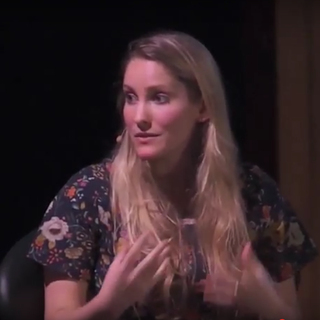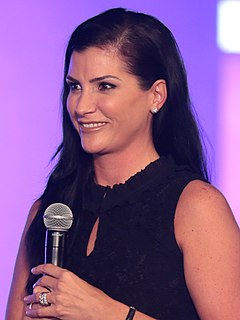A Quote by Laura Bates
The argument goes that the pay gap only exists because of women's 'choices' of work type, hours, and child related career breaks, effectively making it a myth. But research shows that while those are factors, they don't account for the whole gap, suggesting that discrimination certainly plays a role as well.
Related Quotes
The pay gap is a myth, and the pay gap is something that the White House used in 2012 to get Barack Obama elected. It's something obviously that Terry McAuliffe used to get himself elected, and it plays on this idea that women are somehow discriminated against in the workplace and that they're not paid the same amount as men.
In colleges, there are no gender separations in courses of study, and students can freely choose their majors. There are no male and female math classes. But women generally choose college courses that pay less in the labor market. Those are the choices that women themselves make. Those choices contribute to the pay gap.
Pay attention to the gap - the gap between two thoughts, the brief, silent space between words in a conversation, between the notes of a piano or flute, or the gap between the in-breath and the out-breath. When you pay attention to those gaps, awareness of 'something' becomes - just awareness. The formless dimension of pure conciousness arises from within you and replaces identification with form.
Theoretically, you can make, obviously, a powerful argument that centuries of slavery, Jim Crow, discrimination are the primary cause for all those gaps. That those were wrongs done to the black community as a whole, and black families specifically, and that in order to close that gap, a society has a moral obligation to make a large, aggressive investment, even if it's not in the form of individual reparations checks, but in the form of a Marshall Plan, in order to close those gaps. It is easy to make that theoretical argument.
Does that mean that all vestiges of past discrimination would be eliminated, that the income gap or the wealth gap or the education gap [between Afro-Americans and white] would be erased in five years or 10 years? Probably not, and so this is obviously a discussion we've had before when you talk about something like reparations.
There are lots of reasons for that gap between men's and women's wages but to me, the big one is the work-family issue. Trying to juggle children and a job is tough under any circumstances, but especially if you're shooting for the kind of career that involves long hours at work and being on call 24-7.
To me the question right now is: How do I close that first three-quarters of the achievement gap, education gap, wealth gap? What gives me the best chance to do that? And I'm pretty darn sure that if America is a just society and treating people well right now, irrespective of past wrongs, that I'm going to close a big chunk of that gap. I've seen it.

































